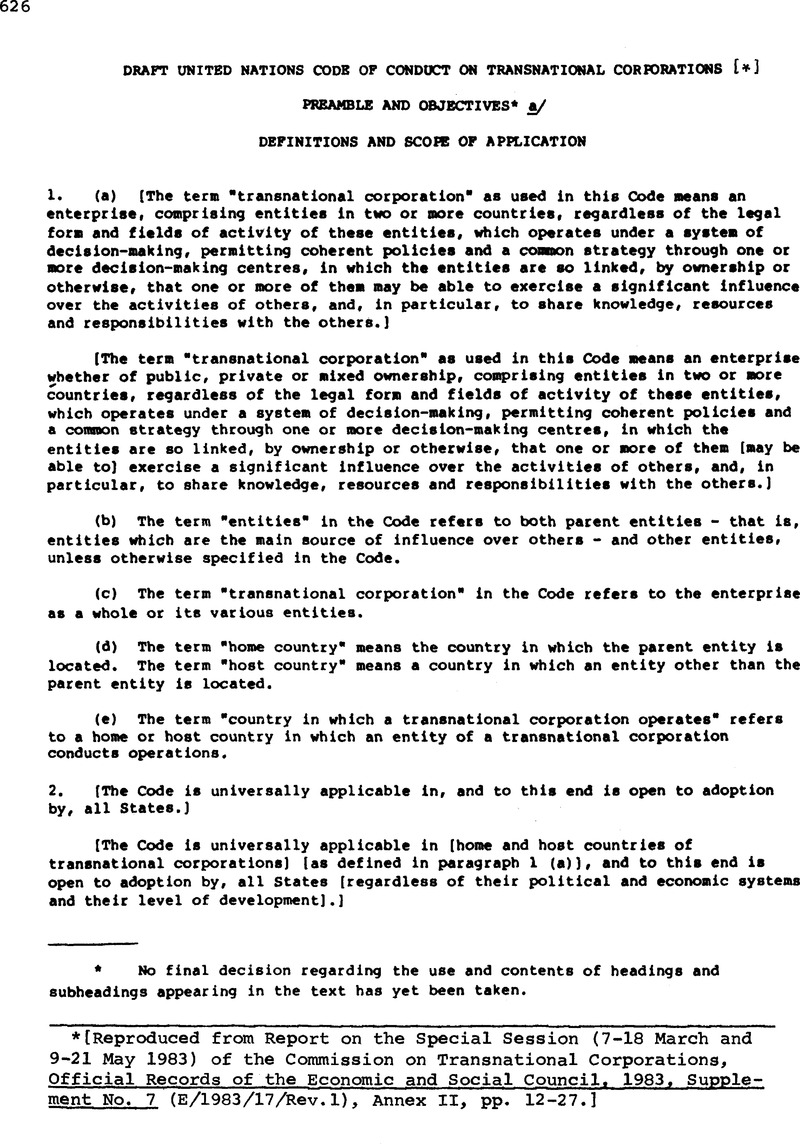Published online by Cambridge University Press: 04 April 2017

[Reproduced from Report on the Special Session (7–18 March and 9–21 May 1983) of the Commission on Transnational Corporations, Official Records of the Economic and Social Council, 1983, Supplement No. 7 (E/1983/17/Rev.l), Annex II, pp. 12–27.]
* No final decision regarding the use and contents of headings and subheadings appearing in the text has yet been taken.
* On the grounds, inter alia, that the text within the first pair of brackets goes beyond the mandate of the Intergovernmental Working Group on a Code of Conduct.
* To be included in one of the substantive introductory parts of the Code.
* To be included in one of the substantive introductory parts of the Code.
* In this alternative, the sentence will end here.
** Some delegations preferred not to have a second sentence.
* It is agreed that the last bracketed text will be deleted provided thatthe concept embodied therein is referred to in the section on objectives.
a/ No drafting was done on the Preamble and Objectives of the Code.However, the following text was drafted during the discussion on other parts of theCode and the decision was taken to place it in one of the substantive introductoryparts of the Code:
“For the purposes of this Code, the principles set out in the TripartiteDeclaration of Principles concerning Multinational Enterprises and SocialPolicy, adopted by the Governing Body of the International Labour Office,should apply in the field of employment, training, conditions of work and lifeand industrial relations.”(No decision has yet been taken on the exact location of this paragraph.)
b/ Some delegations accepted paragraphs 26, 30, 31 and 32 on balance of payments and financing on an ad referendum basis.
c/ The placement of this paragraph has not yet been decided.
* Further discussion of this provision will take place after related issues, such as the mode of adoption and the legal nature of the Code, have been settled.